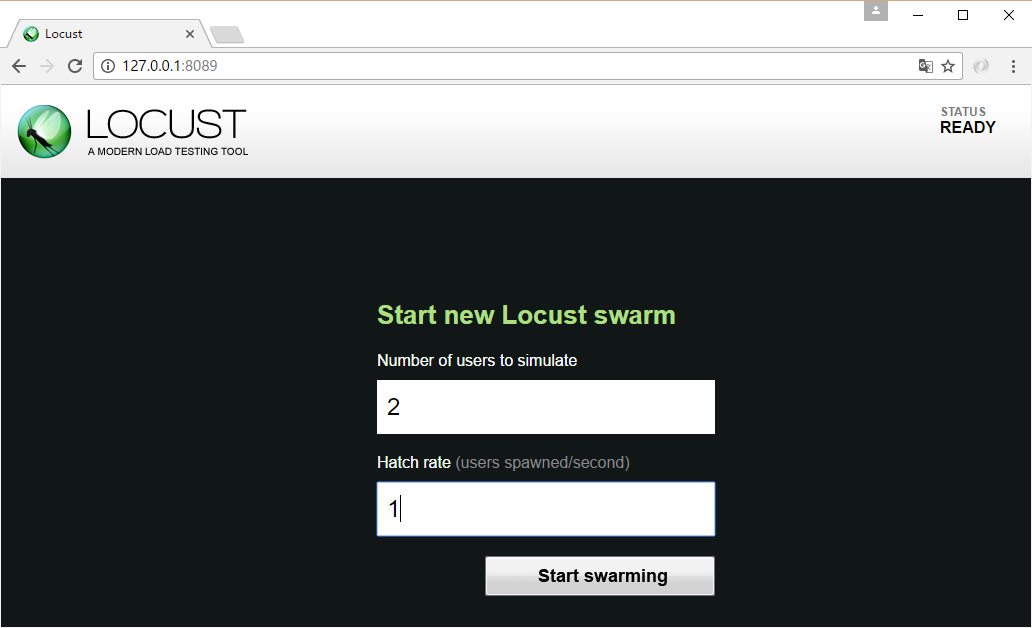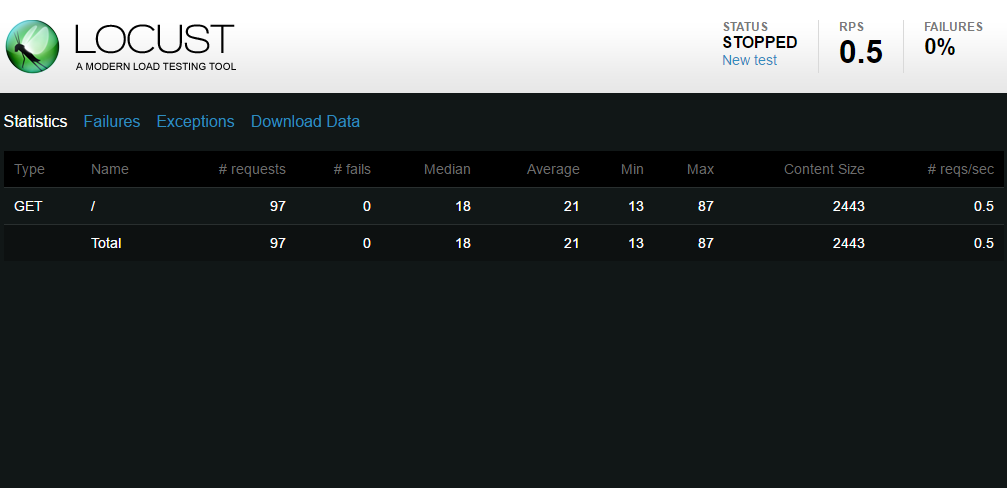性能测试工具Locust
An open source load testing tool.
一个开源性能测试工具。
define user behaviour with python code, and swarm your system with millions of simultaneous users.
使用Python代码来定义用户行为。用它可以模拟百万计的并发用户访问你的系统。
如果你常关注我的博客,大概会注意到我有三、四年没有写过关于性能测试的文章了,其实,今年也没更新几篇像样的博客,反而是我最忙的一年,原因是在写一本关于接口自动化的书。
回到主题,为何突然关注性能测试工具?其实,我只是单纯对Locust工具本身感兴趣而已。1、它与目前主流的LoadRunner和Jmeter玩法都不一样。2、它完全基于Python开发,用Python来编写用户行为。
嗯,如果想用好它的话,你必须对Web开发有一定的认识。而且还要熟悉Python开发。
官方网站:http://locust.io/
Locust安装
1、安装Python:
安装Python2 或Python3
2、安装Locuse
2.1, 通过pip命令安装 /> pip install locustio
2.2, 通过GitHub上克隆项目安装(Python3推荐):https://github.com/locustio/locust
3、安装 pyzmq
If you intend to run Locust distributed across multiple processes/machines, we recommend you to also install pyzmq.
如果你打算运行Locust 分布在多个进程/机器,我们建议你也安装pyzmq.
通过pip命令安装。 /> pip install pyzmq
4、安装成功,CMD敲入命令验证。 /> locust --help
编写简单的性能测试脚本
创建load_test.py文件,通过Python编写性能测试脚本。
from locust import HttpLocust, TaskSet, task
class UserBehavior(TaskSet):
@task(1)
def baidu(self):
self.client.get("/")
class WebsiteUser(HttpLocust):
task_set = UserBehavior
min_wait = 3000
max_wait = 6000
创建UserBehavior()类继承TaskSet类,为用户行为。
创建baidu() 方法表示一个行为,访问百度首页。用@task() 装饰该方法为一个任务。1表示一个Locust实例被挑选执行的权重,数值越大,执行频率越高。在当前UserBehavior()行为下只有一个baidu()任务,所以,这里的权重设置为几,并无影响。
WebsiteUser()类用于设置性能测试。
task_set :指向一个定义了的用户行为类。
min_wait :用户执行任务之间等待时间的下界,单位:毫秒。
max_wait :用户执行任务之间等待时间的上界,单位:毫秒。
运行性能测试
切换到性能测试脚本所在的目录,启动性能测试:
------------------------------------------------------------------
.../> locust -f load_test.py --host=https://www.baidu.com
[2016-11-19 22:38:16,967] fnngj-PC/INFO/locust.main: Starting web monitor at *:8089
[2016-11-19 22:38:16,967] fnngj-PC/INFO/locust.main: Starting Locust 0.7.5
-----------------------------------------------------------------
load_test.py 为测试脚本,https://www.baidu.com 为测试的网站。
打开浏览器访问:http://127.0.0.1:8089

Number of users to simulate 设置模拟用户数
Hatch rate (users spawned/second) 孵化率?不知道怎么翻译,每秒产生(启动)的用户数。
点击Start swarming 开始运行性能测试。

如果引起了你的兴趣,剩下的你自个玩吧!难点在性能测试脚本的编写上。
知识无穷尽也。


 浙公网安备 33010602011771号
浙公网安备 33010602011771号